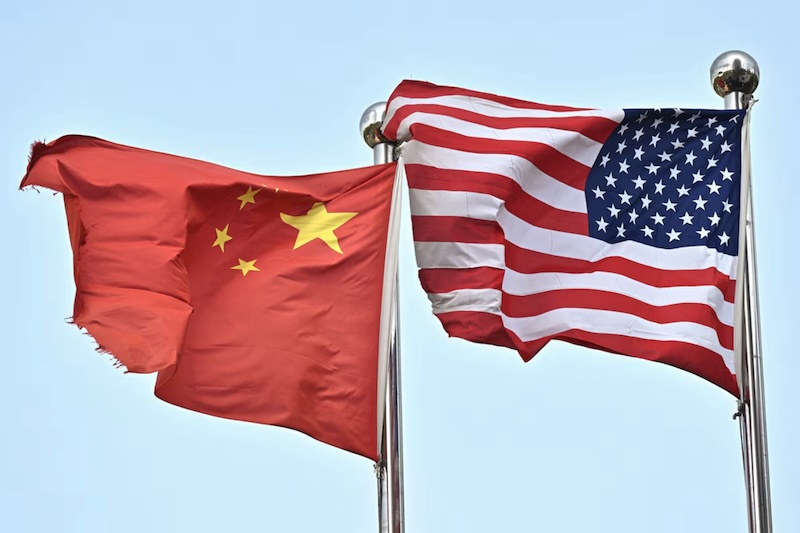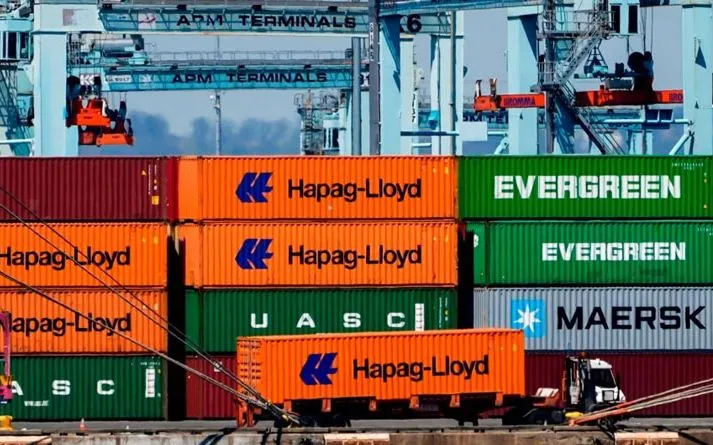President Donald Trump’s punitive tariffs on the world’s top exporter have had a major impact on trade, shipping consultants say.
Policymakers, economists and business owners increasingly crave information about seaborne trade – which accounts for 80% of world trade – as it is a barometer of global economic health.
The ships on those routes have a combined capacity of 25,682 40-foot containers filled with a variety of goods, mostly toys, tennis shoes, auto parts and “input” goods for American manufacturers. The service cuts, along with the cancellation of individual sailings, come as giant container ship operators scramble to mitigate the fallout from Mr. Trump’s erratic trade policies.
“This is not a warning sign, but rather evidence that economic activity is slowing down,” said Simon Sundboell, CEO of Danish maritime data provider eeSea, referring to the current reduction in container shipping capacity.
The suspended routes include weekly scheduled services operated by MSC, Zim and Ocean Alliance including Cosco, Evergreen, CMA-CGM and Orient Overseas Container Line, Sundboell said.
Four service cuts affect West Coast ports, one affects the East Coast and one affects the Gulf Coast, said Simon Sundboell.
Maersk and the Hapag-Lloyd Gemini Alliance have not yet stopped service — although both partners experienced significant cuts in bookings between China and the US in April due to tariffs and swapped some vessels for smaller vessels.
Increased empty shipping
Global shipping companies use the suspension and cancellation of individual sailings, known as blank sailings, to protect profits by ensuring they don’t have more ships on the water than customers need. That reduces unnecessary overhead costs and keeps supply and demand in balance, supporting competitive out-of-contract spot prices.
The number of blank sailings has increased significantly after the Covid-19 pandemic disrupted global trade in 2020 – and is part of the reason global container ship operators have enjoyed record profits.
Major U.S. retailers like Amazon.com and Walmart, which account for nearly half of global container trade, responded to Mr. Trump’s 145% tariffs on China last month by pausing or canceling factory orders after those import duties doubled the cost of goods made in China.
Shipping consultancy Drewry said in a podcast earlier this week that individual sailings canceled or left blank on the key trans-Pacific route from Asia to North America rose from 9% in the week ending March 30 to 24% in the week ending May 4.
Cancellations have reduced capacity on routes from Asia to the West Coast of North America by 20% in April and by 12% so far in May, Drewry data shows.

Senior US and Chinese officials discussed tariffs and trade issues in Switzerland on May 10. Illustration photo: AFP
The cuts hit the North American East Coast a little harder, down 22% in April and 18% so far in May, Drewry said.The trade war between the United States and China is spilling over into the U.S. logistics industry, causing significant disruptions to supply chains. As a result of higher tariffs, U.S. container ports and air carriers have seen a sharp decline in cargo volumes from China.
MSC, the world’s largest container ship operator, has canceled 30% of its scheduled trans-Pacific sailings in April – more than any other container line, said Daniela Ghimp, director of the standardization project for ocean freight rates at Drewry.
Also according to Daniela Ghimp, Premier Alliance, which includes Ocean Network Express (ONE), Hyundai Merchant Marine (HMM) and Yang Ming Marine Transportation, led in May with a 20% empty shipping rate.
The impact of Mr. Trump’s tariffs will likely be delayed until July, when total U.S. container imports could fall 25% or more from a year ago, said John McCown, a senior fellow at the Center for Maritime Strategy.
“Something needs to change and I believe that either there has to be a significant reduction in capacity or spot rates will start to fall sharply,” said Alan Murphy, CEO of supply chain consultancy Sea-Intelligence.
Nathan Strang, director of ocean freight at Flexport, said businesses are halting shipments as they await the outcome of talks between Washington and Beijing on May 10. Some US importers are focusing on selling inventory or storing goods in bonded warehouses to avoid tariffs.
It can be seen that the US-China trade war not only affects the trade relations between the two countries but also creates major fluctuations for the global logistics industry. Flight cancellations, reduced bookings and new tax policies are putting heavy pressure on transport businesses, retailers and consumers. In this context, negotiating to reduce tariffs becomes a key factor to stabilize the supply chain and restore international trade activities.Air freight volumes have also dropped sharply, with bookings from Chinese customers down about 30%, according to the Airforwarders Association.
In addition, the US decision to end the “de minimis” duty-free policy for shipments worth less than $800 from May 2 has further complicated the situation for businesses, which has been an important channel for e-commerce retailers such as Shein and Temu.
















